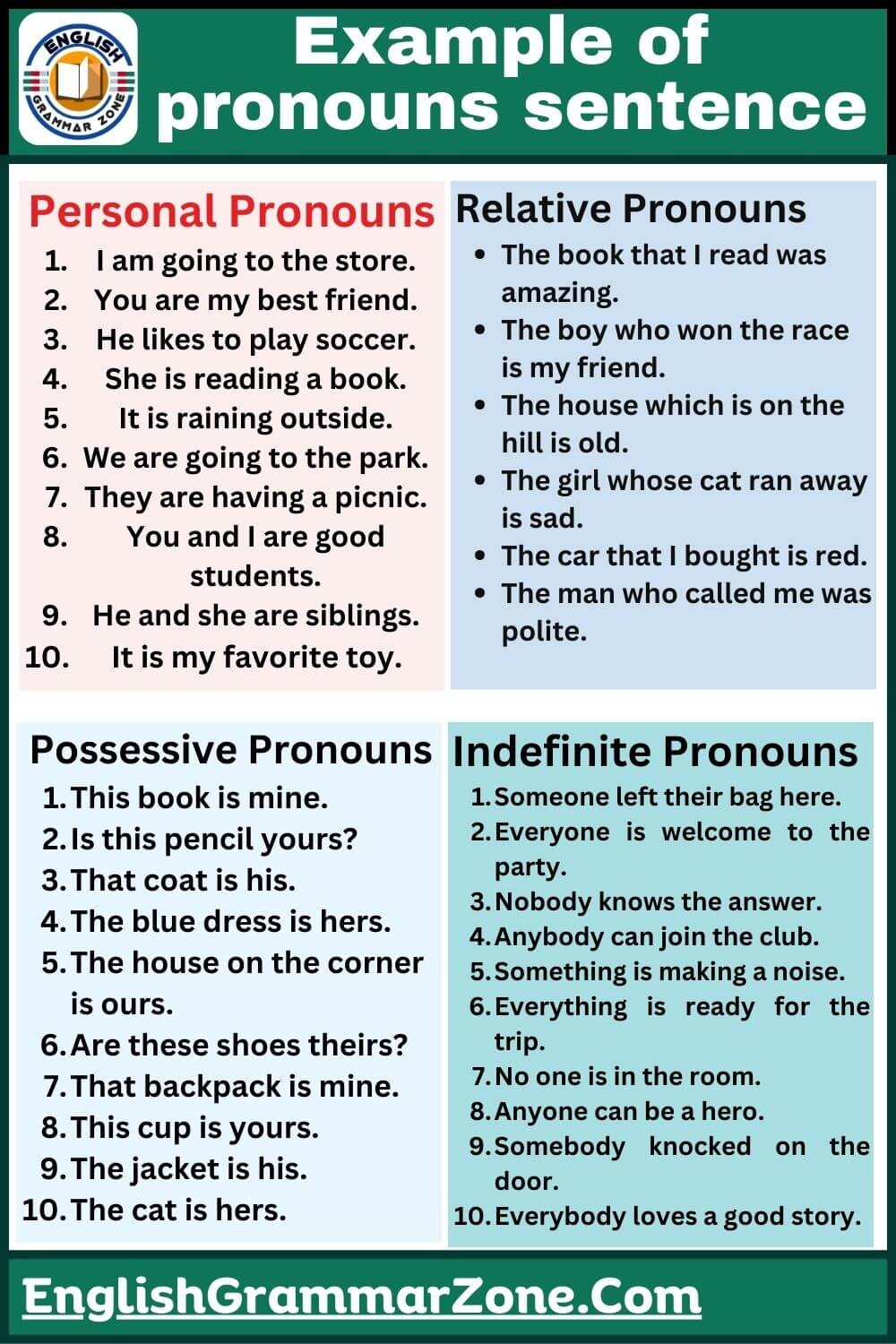Personal pronouns are words that are used to replace nouns in a sentence. They help avoid repetition and make sentences more concise. There are different types of personal pronouns, such as subject pronouns, object pronouns, possessive pronouns, and reflexive pronouns.
One example of a personal pronoun is “he.” This pronoun is used to refer to a male person or animal. It can be used as a subject pronoun, as in “He is going to the store,” or as an object pronoun, as in “I saw him at the park.”
Example of a Personal Pronoun
Another example of a personal pronoun is “she.” This pronoun is used to refer to a female person or animal. It can also be used as a subject pronoun, as in “She is studying for her exam,” or as an object pronoun, as in “I gave her the book.”
Personal pronouns also include “they,” which is used to refer to a group of people or things. It can be used as a subject pronoun, as in “They are coming to the party,” or as an object pronoun, as in “I met them at the mall.”
Additionally, personal pronouns like “we” and “you” are commonly used in everyday language. “We” is used to refer to a group that includes the speaker, while “you” can refer to one person or multiple people. For example, “We are going to the movies” and “You should finish your homework.”
In conclusion, personal pronouns play an important role in English grammar by replacing nouns and making sentences more efficient. They help to clarify who or what is being referred to in a sentence. Understanding how to use personal pronouns correctly is essential for effective communication.
